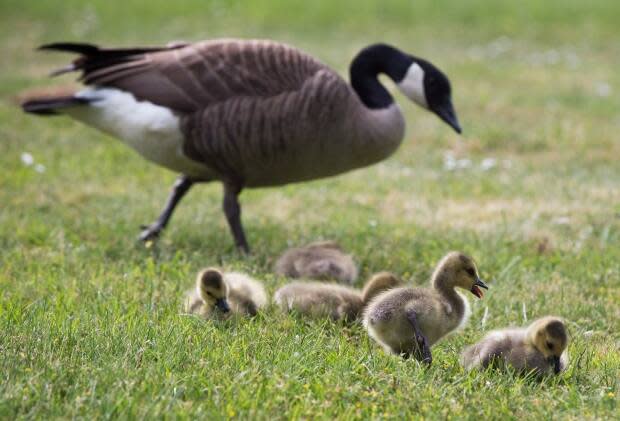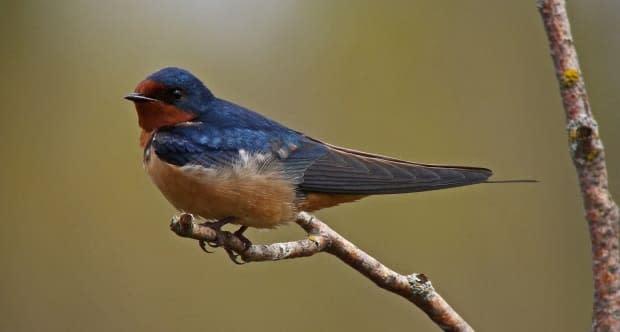Drought, cold snap potentially impacting baby birds this year in Sask: Biologist

The Spring drought in Saskatchewan followed by a sudden cold snap may be affecting the province's bird populations, according to a biologist and educator.
Jared Clarke said drought conditions throughout southern Saskatchewan have been particularly hard on Canada geese searching for locations to build nests.
"There's a lot of wetlands that aren't there this year. They're dry. And so the geese would have returned around Regina and found that these wetlands weren't there and then had to make a decision to move to somewhere else," Clarke said.
The geese need water for their goslings when they hatch for protection from predators. As well, some mature geese may have returned early, found a habitat that's suitable, leading the less mature geese to take longer to find a place.
Geese aren't going to be the only ones affected by the weather this year. Clarke said the recent cold snap may be affecting some smaller birds.
"The aerial insectivores, so things like your barn swallows and your purple martins, those guys have been really struggling since we've gotten this cold snap," Clarke told Saskatchewan Weekend.

The cold snap can deteriorate the body conditions of some smaller birds meaning they may lay fewer eggs, Clarke said.
"It's certainly having impacts," Clarke said. "Mountain bluebirds will already have babies that have hatched potentially. So, this could kill them because the adults might not be able to find enough food to feed them."
Clarke said climate change will mean droughts like this one may become more likely. He said these extreme weather events are becoming more frequent and putting pressure on bird species in a big way.
"Aerial Insectivores like our swallows and flycatchers and those things, those are the group of birds that are declining the fastest in North America right now."

